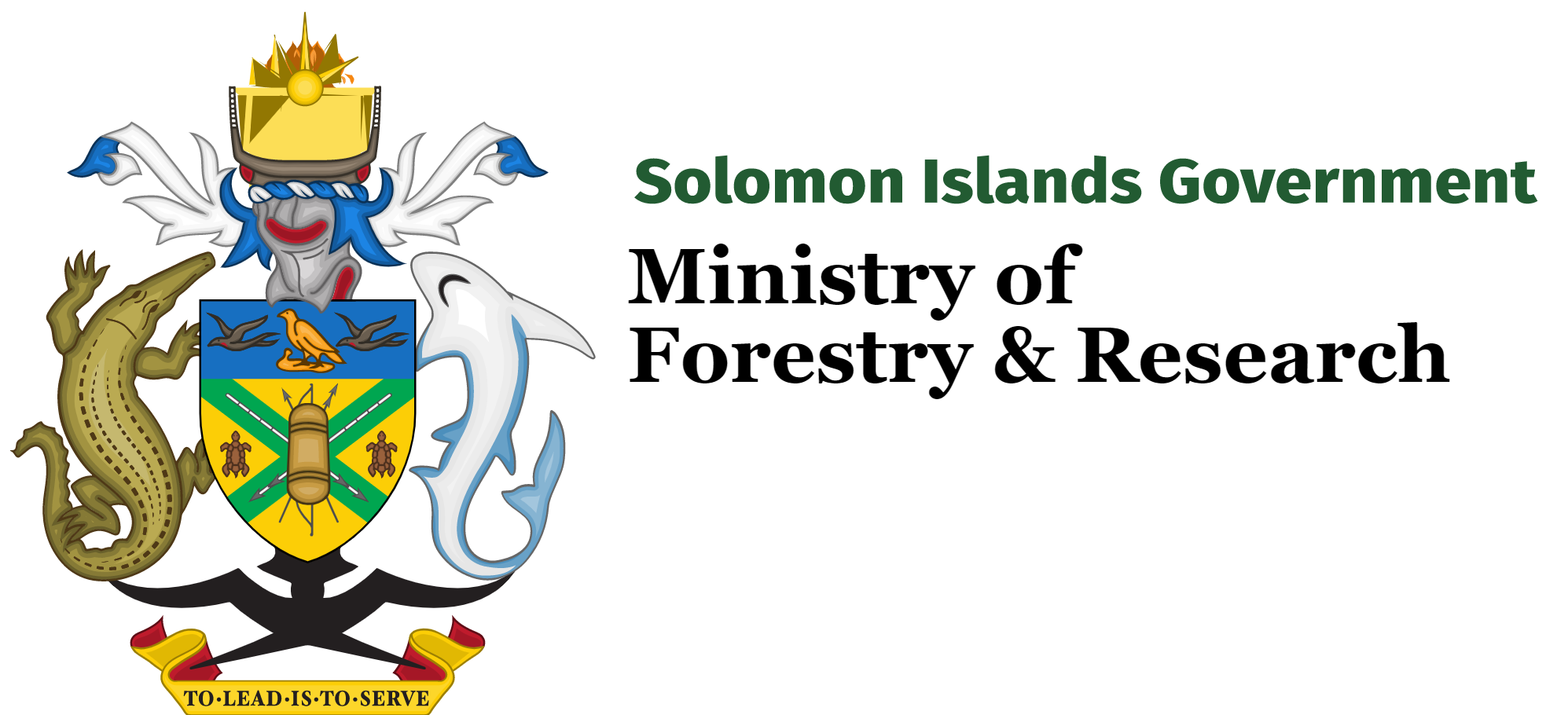PRESS RELEASE
Stakeholders applauded on continuous collaboration
The Forest Sector- Technical Working Group (FS-TWG) comprising of non-government organisations and agencies, donors and partner organisations such as Japan International Cooperation Agency, UNDP, GIZ SPC, Korean International Cooperation Agency, Integrated Forest Management Project, UNDP Small GrantProgramme, ACIAR, Education Institutions like SINU, PHAMA Plus including otherline government ministries representatives have been applauded for their continuous working together under the FS-TWG.
Ministry of Forestry and Research (MoFR) Permanent Secretary, Dr Vaeno Vigulu uttered in his opening remarks at the fourth session of the FS-TWG yesterday in Honiara. “I would like to take this opportunity, on behalf of the outgoing government, the SIDCCG, to thank all the donor partners and collaborators especially JICA, ACIAR, PHAMA+, Taiwan Botanical Garden, GIZ/SPC and the Pacific Community and UNDP/FAO.
“You have contributed and collaborated with the MoFR and other Line Ministries in assisting and enabling us to implement programmes that touch hearts of rural area dwellers and resource owners on activities that promote Sustainable Forest Resource Management activities in small and big ways over the past years, this year 2019 and beyond.
“Your support in many ways had assisted the Ministry in many areas that have developed capacities, provisions of logistics and technical knowhow that enabled the Ministry to simultaneously implement the priority policy area objectives of the government, to assist resource owners and continue to support in rehabilitating the
forest resources of this country and come this far with tangible achievements.
“Without your continuous collaborations some of the activities, achievements and assistance to communities would have not been possible. I also thank you for your continuous understanding in facing hiccups and difficulties when dealing with our government officers,” says PS Vigulu.
He adds urging other interested forest related organisations, the forest industries, community base forest management groups or any forest related projects and individuals to come be part of this ongoing dialogue.
“The sustainable management, utilisation and rehabilitation of our forest resources must continue to be discussed and means to sustain the contribution of the resources to the national economy, provision of ecosystem services and contribution of forests in addressing climate change must be encouraged and enhanced.”
The Permanent Secretary highlighted that such platform is very important to ensure reporting of various forest stakeholder activities simultaneously executed through single and various collaborations is made know.
It also presents another opportunity to strengthen collaboration with broader base applications of the principle of sustainable management of forest resources across the country through various undertakings.
And to ensure to avoid reinventing of the wheels rather work hand in hand wherever needed and necessary to do so, he stresses.
“Over decades, this country depends heavily on forest resources for revenue generation; hence, forestry is an important sector that generated much of the government revenues in the past decades until recently.
“The last 5 years, an average of 2 million m3 of round logs were exported, this represents around SBD $500 million annually over the period, which represents approximately 20% of the government revenues and around 60% of export. That
showed, forestry sector is one of the major driver of the economy of this country.
“2016 was (2.7 million m3) followed by 2017 (2.6 million m3), 2018 was the history as we had exported a record of approximately 2.8m m3 of round logs from natural forests and plantation forests.
“To date, with reference to the Sustainable Logging Policy, the harvest may be 4 times unsustainable compared to the recently recommended total target of 700,000 m3 as annual sustainable cut for plantation and natural forests,” says the Permanent Secretary.
Dr Vigulu says as such the outgoing government through MoFR has been embarking on means to help reducing it to a sustainable rate. “That includes work on finalizing the review of the Forestry Act and the National Forest Policy that is concluding this month in preparation for submission to the new Government Cabinet.
“Measures taken indicated the seriousness the outgoing government has taken in reviewing and developing measures to sustainably manage the forest resources.”
He explains that the short term priority policy areas encompassed promotion and encouragement of sustainable forest management, agroforestry systems, afforestation in the grassland reforestation, enrichment and regeneration management on the logged over islands degraded and deforested landscapes.
“These forest related activities are currently occurring in only 23 percent (640,000 hectares) of the production forests over the 2.8 million hectares of Solomon Islands land mass.
“The government had also looked into promoting non-timber forest products and aesthetic values of the island rainforests to support livelihoods through eco-tourism to reduce and moving away from reliance on timber products.
“That would help reducing further degradation of rainforests and to promote sustainable forest resources management to progressively support the economy and national collaborative attempt in addressing climate change in the long term.”
The Permanent Secretary concluded reiterating the purpose of the group as a platform for sharing of information by all stakeholders and friends of forest.
“We are expecting all to discuss and contribute in strategizing the way forward.
“Avenue that allows for consultation; and contribution from everybody and organisations to avoid re-inventing wheels, especially in research for development, production and added value products.
“We should be working hand in hand to enhance programmes and objectives to achieve anticipated outcomes.” – MoFR Press









